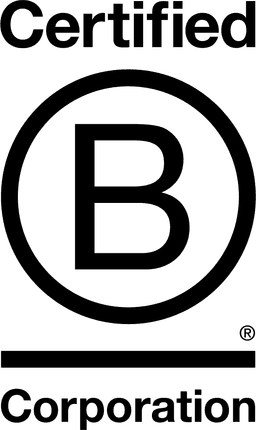

Jude's

Hampshire, United Kingdom
August 2020
Food products
Manufacturing
Austria,
Belgium,
France,
Germany,
Netherlands The,
United Kingdom
Jude’s is dedicated to crafting lip-smakingly delicious ice cream. The Hampshire based second generation family business has won over 100 Great Taste Awards for its innovative flavours and creamy plant based and dairy ice creams. Jude’s exists to bring life to people – their team, farmers, top chefs and customers - and the planet. Jude’s is on a mission to pioneer radical change in its industry by making the most delicious craft ice cream and treading lightly on the planet. Jude’s has always believed in using business as a force for good and this impacts absolutely everything they do. From making lower sugar products for kids and growing their plant based range to using solar power in their Twyford ice cream factory and supporting charities working with children and young people.
Overall B Impact Score
Governance 18.0
Governance evaluates a company's overall mission, engagement around its social/environmental impact, ethics, and transparency. This section also evaluates the ability of a company to protect their mission and formally consider stakeholders in decision making through their corporate structure (e.g. benefit corporation) or corporate governing documents.
What is this? A company with an Impact Business Model is intentionally designed to create a specific positive outcome for one of its stakeholders - such as workers, community, environment, or customers.
Workers 29.5
Workers evaluates a company’s contributions to its employees’ financial security, health & safety, wellness, career development, and engagement & satisfaction. In addition, this section recognizes business models designed to benefit workers, such as companies that are at least 40% owned by non-executive employees and those that have workforce development programs to support individuals with barriers to employment.
Community 18.5
Community evaluates a company’s engagement with and impact on the communities in which it operates, hires from, and sources from. Topics include diversity, equity & inclusion, economic impact, civic engagement, charitable giving, and supply chain management. In addition, this section recognizes business models that are designed to address specific community-oriented problems, such as poverty alleviation through fair trade sourcing or distribution via microenterprises, producer cooperative models, locally focused economic development, and formal charitable giving commitments.
Environment 22.9
Environment evaluates a company’s overall environmental management practices as well as its impact on the air, climate, water, land, and biodiversity. This includes the direct impact of a company’s operations and, when applicable its supply chain and distribution channels. This section also recognizes companies with environmentally innovative production processes and those that sell products or services that have a positive environmental impact. Some examples might include products and services that create renewable energy, reduce consumption or waste, conserve land or wildlife, provide less toxic alternatives to the market, or educate people about environmental problems.
Customers 3.6
Customers evaluates a company’s stewardship of its customers through the quality of its products and services, ethical marketing, data privacy and security, and feedback channels. In addition, this section recognizes products or services that are designed to address a particular social problem for or through its customers, such as health or educational products, arts & media products, serving underserved customers/clients, and services that improve the social impact of other businesses or organizations.